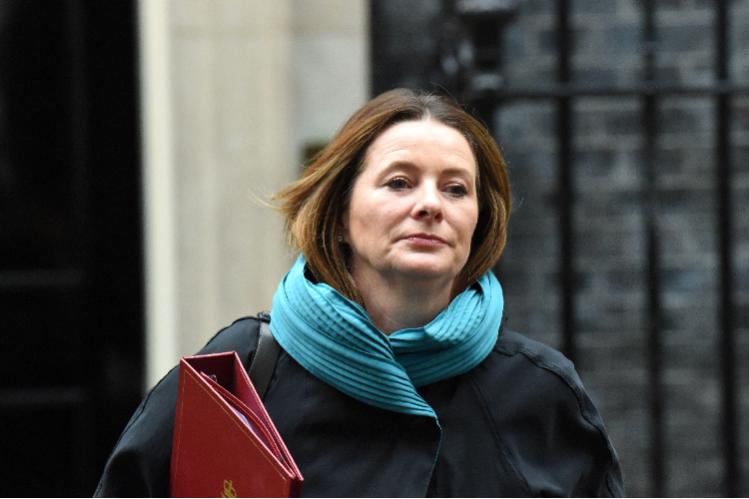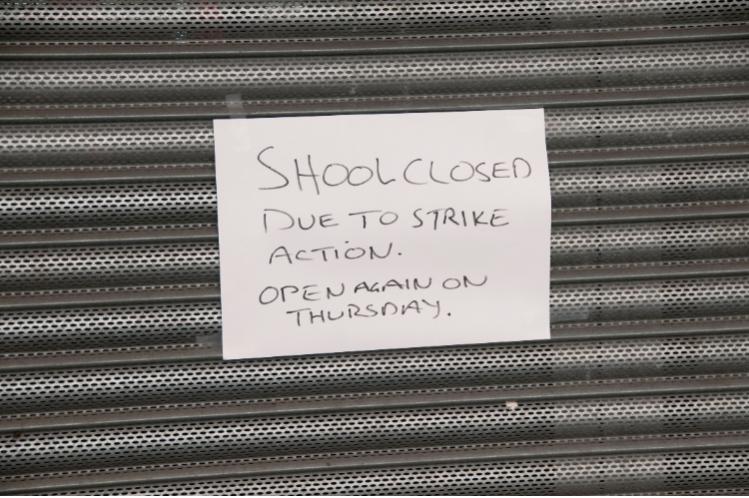Why Thousands Of Teachers Are Going On Strike
The National Education Union, the largest teachers’ union in the UK, will go on strike over pay (Alamy)
8 min read
Thousands of teachers in England and Wales are set to strike on Wednesday after talks between education unions and the government failed to reach an agreement.
The teachers' strike is the latest thread of widespread public sector disruption, with NHS staff, transport workers and civil servants walking out this month.
Unions from multiple sectors are calling for pay rises as the cost of living crisis bites this winter.
Here is everything you need to know about the teachers’ strike…
Which teachers are going on strike and when?
It has been confirmed this week that members of the National Education Union (NEU), the largest teachers’ union in the UK, will go on strike over pay.
The NEU has said more than 100,000 teachers in 23,000 primary and secondary schools could walk out across the following days:
- Wednesday, February 1 (England and Wales),
- Tuesday, 14 February (just Wales)
- Tuesday, 28 February (Northern, North West, and Yorkshire Humber regions),
- Wednesday, 1 March (East Midlands, Western, Eastern regions)
- Thursday, 2 March (London, South East, South West regions)
- Wednesday, 15 March (England and Wales)
- Thursday, 16 March (England and Wales)
Teachers in Scotland who are members of the Educational Institute of Scotland (EIS) union have already been involved in industrial action since mid-January.
However, two other unions representing teachers – the National Association of Schoolmasters/Union of Women Teachers (NASUWT) and the National Association of Headteachers – did not reach the threshold for votes in favour of striking.
What demands do teachers have?
The NEU is demanding a pay rise for teaching staff to correct real-terms pay cuts due to inflation.
Since 2010, teachers have seen their salaries fall by 23 per cent in real terms and support staff have seen a 27 per cent real-term decrease.
With inflation currently at more than 10 per cent, the average pay rise for teachers this year, following an announcement in the autumn statement, is at 5 per cent.
The NEU says that a pay increase for teachers would not only help teachers cope with the increased cost of living, but also start to address chronic staff shortages in schools.
A third of teachers currently resign within five years of qualifying.
How has the government responded to the NEU’s demands?
 The education secretary said she is "disappointed" strikes are going ahead (Alamy)
The education secretary said she is "disappointed" strikes are going ahead (Alamy)
Union bosses held a final talk with education secretary Gillian Keegan on Monday afternoon, but the negotiations led to no further funding or pay offers.
Joint general secretary of the NEU Dr Mary Bousted told Schools Week: “I’m afraid the strike will be going ahead.
“There was no offer put on the table. We just talked about things we talked about before. We impressed upon the secretary of state that we are very serious about negotiating.
“We do want a deal. But there have to be serious negotiations to address the issues our members are raising.”
In a tweet after the failed talks, Keegan said that members should inform their headteachers if they are planning on going on strike, so contingency measures can be put in place.
“I am disappointed the NEU is taking action despite our continued engagement,” she wrote with an attached letter.
“I’ve written to teacher unions calling on them to ask their members to inform schools if they intend to go on strike.”
However, Labour accused the government of refusing to work with unions, with shadow education secretary Bridget Phillipson claiming that “we’ve known strikes might happen since last summer”.
She tweeted: “Back in June, I urged Ministers to get round the table, to work with the unions.
“Yet the government were nowhere. Instead we have had months of mounting Conservative chaos.
“A merry-go-round of Education Secretaries — not one of them serious about working for a deal.”
In 2022, the department went through five education secretaries in four months, due to a string of resignations and reshuffles.
Why have teachers voted to strike?
In England, 90.44 per cent of NEU teacher members voted ‘yes’ to strike action after a turnout of 53.27%, while 84 per cent of support staff agreed after a 46.46 per cent turnout.
In Wales, 92.28 per cent of teachers voted ‘yes’ and 88 per cent of support staff, on a turnout of 53.27 per cent and 51.3 per cent respectively.
Teacher Tapp, a daily survey app for teachers, has researched the perspectives of teachers on the prospect of strike action.
 The majority of members who voted support strike action (Alamy)
The majority of members who voted support strike action (Alamy)
One teacher commented on their survey: “Huge support – pay and conditions have been awful for too long.”
Another said: “A necessity if we want the best for children and teachers,” and a third teacher commented: “It’s about time that the government listened. We can’t keep being overlooked. It is appalling and affects all stakeholders.”
One secondary school teacher in North Yorkshire told PoliticsHome he is going on strike later this month.
"The education system has gone down the pan," he said. "In my class, I've got three glue sticks between 150 kids I teach, which is meant to last for the foreseeable future.
"Schools have been starved of money and there comes a point when enough is enough."
However, Teacher Tapp’s findings also showed some teachers have worries or regrets about industrial action.
One said they were in “two minds” about industrial action. “I promote the strikes, yet equally can’t afford to strike due to losing a full day’s pay,” they added.
Another teacher said it was a “hard call” and that “government need to take action but children shouldn’t have to suffer”.
Esmee Haigh, a secondary school teacher in Oxfordshire, has decided not to strike. She PoliticsHome: “We had a 9 per cent pay rise very recently.
“In my opinion nurses, paramedics, and firefighters should get the pay rise before we do.”
Haigh also suggested teaching assistants should get a pay rise ahead of teachers.
“If they put the money towards TAs, our jobs as teachers would become a lot easier and the value of TAs would begin to be represented in their pay,” she added.
How will teachers’ strikes impact schools?
 Many schools will fully close across England and Wales (Alamy)
Many schools will fully close across England and Wales (Alamy)
According to a Teacher Tapp poll of 7,723 teachers, schools in London are likely to see the most disruption.
23 per cent of schools in the capital are closing to all pupils on Wednesday, with a further 46 per cent only partially open, while only 9 per cent of schools in the Midlands are closing fully.
Primary schools are less likely to shut than secondary schools, with 40 per cent of primary school in England and Wales saying they are remaining open to all pupils on Wednesday.
This is compared to only 22 per cent of secondary schools.
The Department for Education believe the strikes will disrupt children’s education, with a statement saying: “After two years of disrupted education due to the pandemic, every single day spent in school with experienced teachers who know their students makes a difference to a child’s development.
“The NEU’s decision to call strike action puts children’s education and wellbeing at risk at a time when teachers are working hard to support them in recovering from the pandemic.”
However, the ASCL union, which represents school leaders, says that provisions will be put in place to keep disruption to a minimum.
Geoff Barton, General Secretary of the ASCL, told PoliticsHome: “School leaders are providing a mixture of onsite provision and remote education on 1 February according to what is feasible and safe in terms of the number of students it is safe to accommodate given available staffing levels.”
He did acknowledge that headteachers may not know the “full picture” of how many staff will be absent, adding: “The law does not require teachers who are taking part in strike action to identify themselves to the employer ahead of the action taking place, so school leaders may not necessarily know the full picture of who is available to work until the morning of the action.
“They will therefore have planned on the basis of what onsite provision they know they will be able to safely put on. They will have looked in particular at how they support students taking mock exams and scheduled vocational exams, and vulnerable children.”
The ASCL have themselves considered industrial action over real-term pay cuts to school leaders, as well as the teacher recruitment and retention crisis.
PoliticsHome Newsletters
PoliticsHome provides the most comprehensive coverage of UK politics anywhere on the web, offering high quality original reporting and analysis: Subscribe
